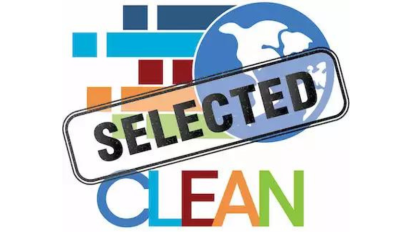Cartoons and jokes and lies: that’s the recipe for climate change denial aimed at kids, sometimes kids as young as six years old, judging from recent campaigns from conservative outfits like the CO2 Coalition, Mike Huckabee’s EverBright Kids, and PragerU. It’s not a new recipe, either: the same cookbook was employed, less blatantly but more pervasively, over the last two decades by a state government agency funded by voluntary contributions from the fossil fuel industry.
With a yearly budget in the tens of millions of dollars, the Oklahoma Energy Resources Board produces classroom materials with such kid-friendly characters as Petro Pete and the fourth-rate Bill Nye impersonator who hosts “Lab Time with Leo.” The supposed virtues of fossil fuels are front and center, as in “Petro Pete’s Big Bad Dream,” written for elementary school students. The contribution of fossil fuel consumption to climate change is nowhere to be seen.
Whatever its source, it’s dismaying that such propaganda is aimed at so young an audience. That’s not only because these students will then have to unlearn the lies and distortions at a later stage in their science education. It’s also because their elementary teachers, who should be trustworthy sources of information about science for these students, typically lack the preparation and the resources to counter misinformation and disinformation about climate change.
A 2018 national survey found that only one in three elementary school teachers felt very well prepared to teach science; only one in five felt very well prepared to teach earth science. With regard to climate change in particular, a 2022 survey commissioned by the North American Association for Environmental Education discovered that elementary teachers were the least confident educators when it came to teaching climate change.
By the same token, such teachers feel a dearth of reliable educational resources on climate change. Fully 40 percent of elementary teachers in the NAAEE survey reported that they lacked resources to teach effectively about climate change, with a further 25 percent reporting that such resources were available only some of the time. One elementary teacher commented, “I would need something at a level that my students would understand.”
Fortunately, there’s reason for hope. The main source of guidance for teachers is their state science standards, which specify the skills and abilities students are expected to acquire in the course of their education. Climate change is adequately represented at the middle and high school level in the bulk of these standards, and although it isn’t usually explicit, the conceptual framework for a later understanding of climate change is erected at the elementary level.
As a result, elementary teachers are increasingly expected to have more knowledge about climate change and how to teach it effectively. In consequence, a handful of states have budgeted to provide professional development on climate change for their teachers, while publishers are beginning to revise their textbooks to comply with standards improved to include more content relevant to climate change at the elementary material.
Expect the purveyors of climate change denial to redouble their efforts as climate change education becomes more prevalent across the country — and don’t expect elementary students to be spared. After PragerU’s videos received the imprimatur of Florida’s department of education, it was reported that its CEO “wants to ensure schools frame climate science as a debate” with the goal of reaching children “when they are at their most impressionable.”
But no fewer than 80 percent of Americans agree that it is important for elementary as well as secondary school students to learn about climate change, according to a 2023 national survey. That’s not surprising: today’s students are going to be spending the rest of their lives coping with the challenges of climate change. The work of preparing them to do so begins in the elementary school classroom, and their teachers need to be equipped with the necessary ingredients.









